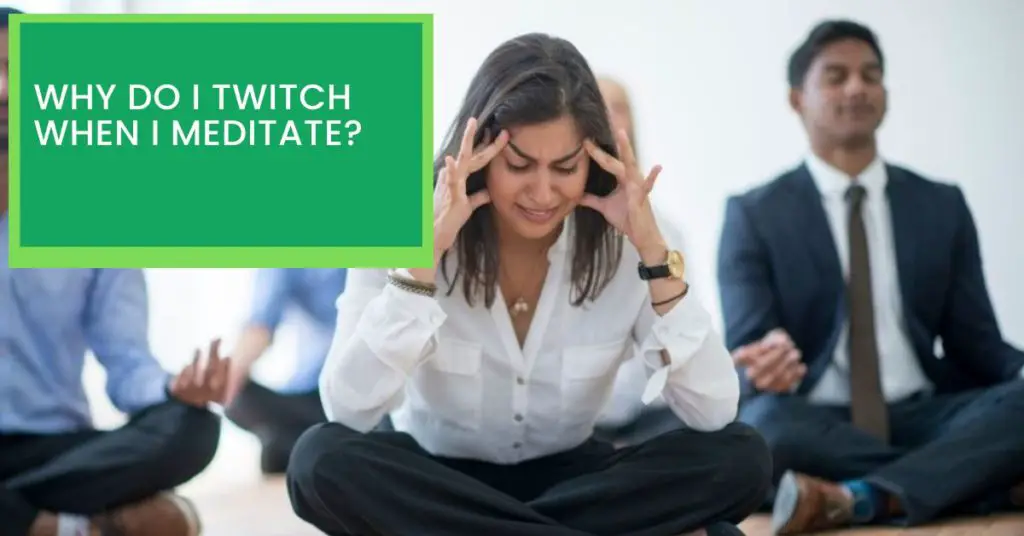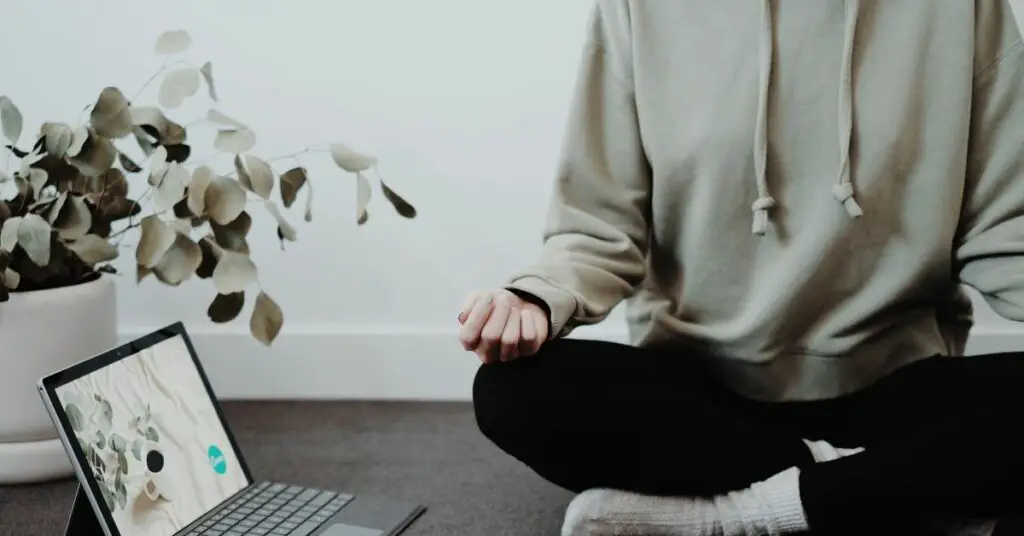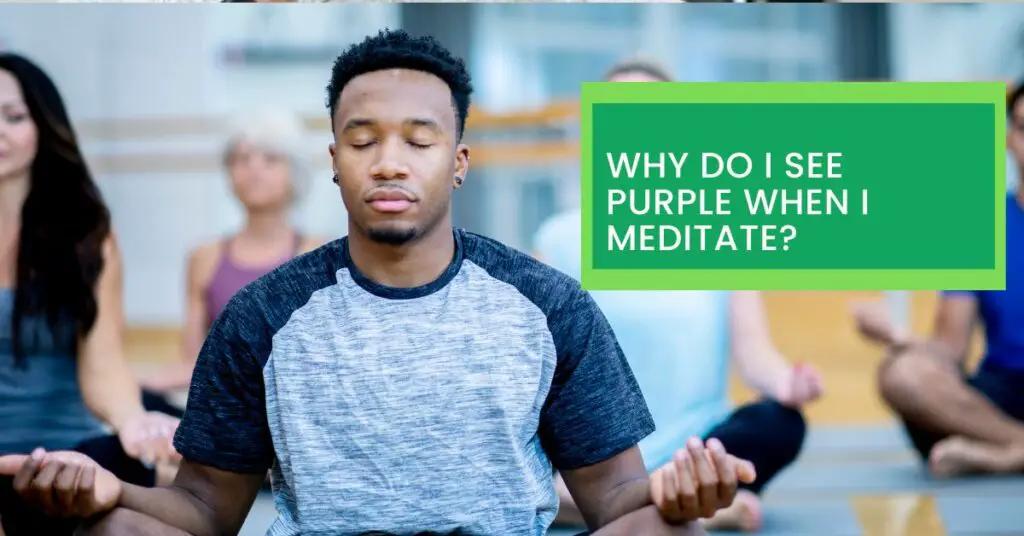Meditation has been practiced for centuries as a way to improve mental and physical well-being. While there are many different types of meditation, the goal is typically to focus and quiet the mind.
When you meditate, you may notice that your body starts to twitch. This is perfectly normal and nothing to worry about. Twitching is simply a sign that your body is relaxing. If you find it distracting, just focus on your breath and let the twitching go. It will eventually stop.
In this article, we’ll explore why meditation can cause twitching, as well as some other things you should know about this normal side effect.
How to Get Started With Meditation?
It can be tricky to get started with meditation, but once you get the hang of it, it can be an incredibly rewarding experience. Here are a few tips to help you get started:
1. Find a comfortable place to sit or lie down. You don’t need to be in a special position to meditate. Just make sure you’re comfortable.
2. Close your eyes and focus on your breath. Take a few deep breaths and try to clear your mind of all other thoughts.
3. Start with a short session. You don’t need to meditate for hours at a time, and even a few minutes can be beneficial. Over time, you can gradually increase the length of your session.
4. Be patient. It takes practice to be able to clear your mind, so don’t get discouraged if it doesn’t happen right away. Just keep at it, and eventually, you’ll get the hang of it.
With these tips in mind, you should be well on your way to successful meditation practice. Just remember to be patient and go at your own pace, and you’ll be sure to reap the benefits of this wonderful practice.
What Causes Twitching During Meditation?
There are a few potential causes of twitching during meditation. First, it could be due to muscle tension. When we sit for long periods of time without moving, our muscles can start to feel tight and uncomfortable. This can lead to them contracting and causing involuntary movements, like twitching.
Another possibility is that the twitching is caused by a release of built-up energy. When we meditate, we are intentionally slowing down our thoughts and focusing on our breath. This can cause some of the pent-up energy in our bodies to be released, which can manifest as twitching or other physical sensations.
Finally, it’s also possible that the twitching is simply a response to the deep relaxation that we experience during meditation. When our bodies are deeply relaxed, it’s not uncommon for them to make slight movements or noises as they adjust to this new state.
Overall, there’s no need to worry if you experience some twitching during meditation. It’s usually nothing to be concerned about and is simply a sign that your body is responding to the relaxation.
Is Twitching While Meditating a Disease?
No, twitching while meditating is not a disease. However, if you find that you are constantly twitching while trying to meditate, it could be a sign that you are not relaxed enough. Try to focus on your breath and let go of any tension you may be holding in your body. If the twitching persists, consulting with a doctor or meditation teacher may be helpful.
How to Stop Twitching During Meditation?
There are a few things that you can do in order to stop twitching during meditation.
Firstly, make sure that you are comfortable and relaxed. If you are tense, your muscles will be more likely to twitch.
Secondly, focus on your breath and try to breathe deeply and evenly. This will help to calm your mind and body.
Finally, if you find that your muscles are still twitching, simply focus on the sensation of the twitch itself and try to relax into it.
With practice, you should be able to stop twitching during meditation.
The Importance of Being Patient And Persistent When Learning How to Meditate
When it comes to learning how to meditate, it is important to be both patient and persistent. Meditation is not something that you will learn how to do overnight. It takes time, practice and patience to learn how to meditate effectively.
Do not get discouraged if you find it difficult to sit still or clear your mind at first. Meditation is a skill that must be developed over time. The more you practice, the better you will become at it.
Be patient with yourself and give yourself time to learn how to meditate. It is well worth the effort as meditation can provide many benefits, including reducing stress, improving concentration and promoting overall well-being.
Frequently Asked Questions Related to Meditation And Twitching
1. Why do I twitch when I relax my body?
It’s common to experience muscle twitching when you relax your body, especially after a long day of stress.
This is because frequent stress responses cause your muscles to keep moving, even when you’re resting. Over time, this can cause the muscles to fatigue and twitch.
Fortunately, there are plenty of ways to reduce stress and help your muscles relax. Some simple tips include getting regular exercise, practising meditation or mindfulness, and eating a healthy diet.
If the muscle twitching is particularly bothersome, talk to your doctor about possible treatments. There may be medications or therapies that can help reduce muscle spasms and relieve the discomfort.
2. Is twitching natural?
Yes, twitching is perfectly normal. In fact, athletes and other people who exercise often experience muscle twitches because of vigorous movement.
However, if you’re experiencing frequent or severe muscle twitches, it’s best to consult a doctor to rule out any underlying medical conditions.
3. What do anxiety twitches look like?
Anxiety twitches can look like a small movement or a larger, jerking motion. They can be an indicator that you’re feeling tense or anxious.
If you experience frequent anxiety twitches, it might be helpful to explore what’s causing your anxiety and find ways to deal with it. Twitching can also be a side-effect of certain medications.
If you’re taking medication and notice that you’re twitching more often than usual, speak to your doctor about whether a different medication might be more suitable for you.












